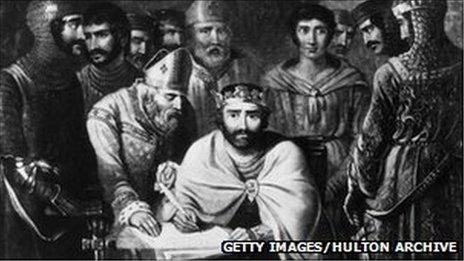MPs call for anniversary debate on 'new Magna Carta'
- Published
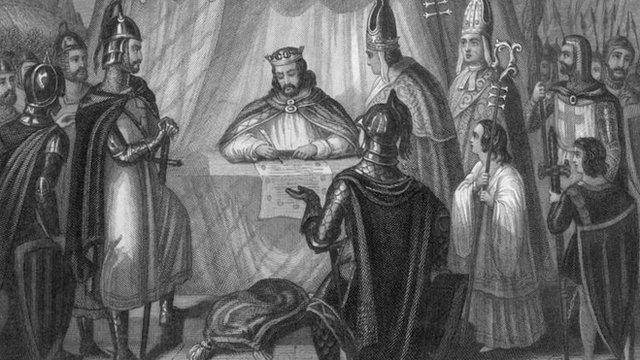
Magna Carta subjected the sovereign to the laws of the land for the first time.
The 800th anniversary of Magna Carta next year is the right time for a fresh debate on the pros and cons of a written constitution, MPs have said.
The Commons Political Reform Committee said the UK was currently governed by a "sprawling mass" of laws, treaty obligations and unwritten conventions.
It said a written constitution was one of three possible options that could form the basis of a "new settlement".
Magna Carta enshrined basic freedoms and limited monarchical power.
In 2015, the UK is marking the anniversary of the sealing of the first "Great Charter" by King John in 1215.
The cross-party committee said the celebrations were an appropriate moment to consider the UK's future constitutional framework.
It has published research by King's College London's constitutional unit, which has been fours years in the making, that sets out the arguments for and against a fully written constitution.
'Anachronism'
On the one hand, the research argues, a constitution - a basic document of law setting out the relationship between the state and its citizens - would entrench requirements for popular and parliamentary consent in decision-making and address concerns that it is too easy for governments to tinker with existing constitutional conventions "to suit their own political convenience".
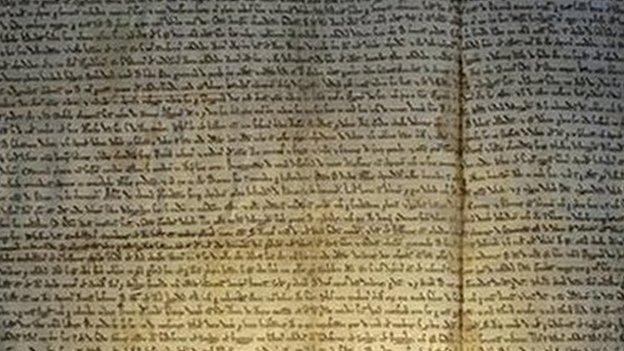
The UK is governed by a "sprawling mass" of laws and conventions, experts say
Changes to the UK's unwritten arrangements are needed, it suggests, because they are an "anachronism... riddled with references to our ancient past" which fail to "give primacy to the sovereignty of the people".
On the other hand, it says, the UK's evolutionary constitutional traditions have helped create the space for individual reforms when they are needed and to tackle practical problems when they arise.
It also suggests that there is no real popular demand for a written constitution, that such a step would be "un-British" and could politicise the judiciary by requiring it to pass judgement on the constitutionality of government legislation when such matters should be left to Parliament.

What is Magna Carta?
Magna Carta - meaning Great Charter - is not just one document. It is a number of them, from different dates, all referred to under the same collective name.
The publication has its origins in a dispute between King John and English barons, and it went some way towards limiting the King's authority.
The first document was sealed - not signed - in 1215 by King John at Runnymede. The final one was issued in 1300. Seventeen versions survive from the 13th Century.
The charter guaranteed basic freedoms and property rights to "free men" while subjecting the sovereign to the laws of the land for the first time.
Magna Carta was renegotiated on four occasions within the first decade of its existence, as both the King and England's earls, bishops and barons all attempted to redefine its terms.

As well as a fully written constitution, the research sets out two other options for codifying existing constitutional provisions and conventions:
a constitutional code - a document, sanctioned by Parliament but without statutory authority, which would set out the essential elements and principles of the constitution and the working of government
a constitutional consolidation act - a piece of legislation that would consolidate existing laws of a constitutional nature, the common law and parliamentary practice
Graham Allen, the Labour MP who chairs the committee, said it was not endorsing any of the approaches but seeking to trigger a "comprehensive evaluation" of the UK's constitutional processes.
"We are living through a period of considerable democratic change and upheaval," he said, citing devolution to Scotland, Wales and Northern Ireland, reform of the House of Lords, the establishment of the Supreme Court, Freedom of Information legislation and fixed-term Parliaments in the past 20 years.
"At the same time, attempts have been made to write down some of our existing democratic arrangements which are not actually part of law in documents such as the Ministerial Code, the Civil Service Code and the Cabinet Manual.
"These changes and attempts to write down existing arrangements have been piecemeal.
"The question is do we need a new Magna Carta to shape Britain's relationship with its people, Europe and the world for the next 800 years?"
- Published17 June 2014
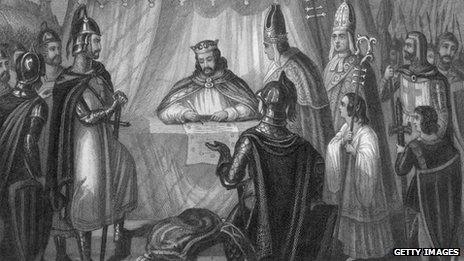
- Published28 September 2012
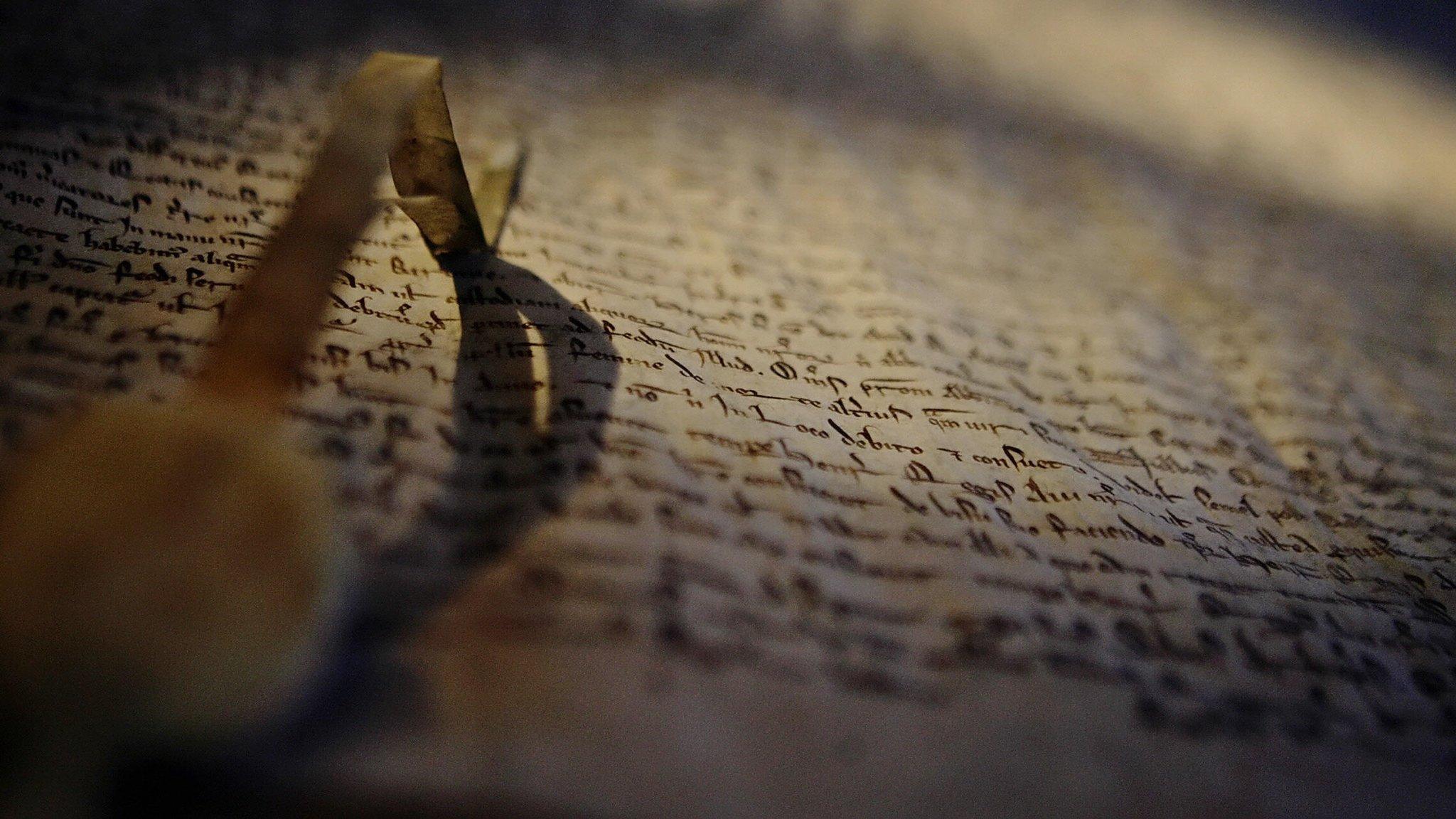
- Published27 September 2012

- Published18 September 2011
